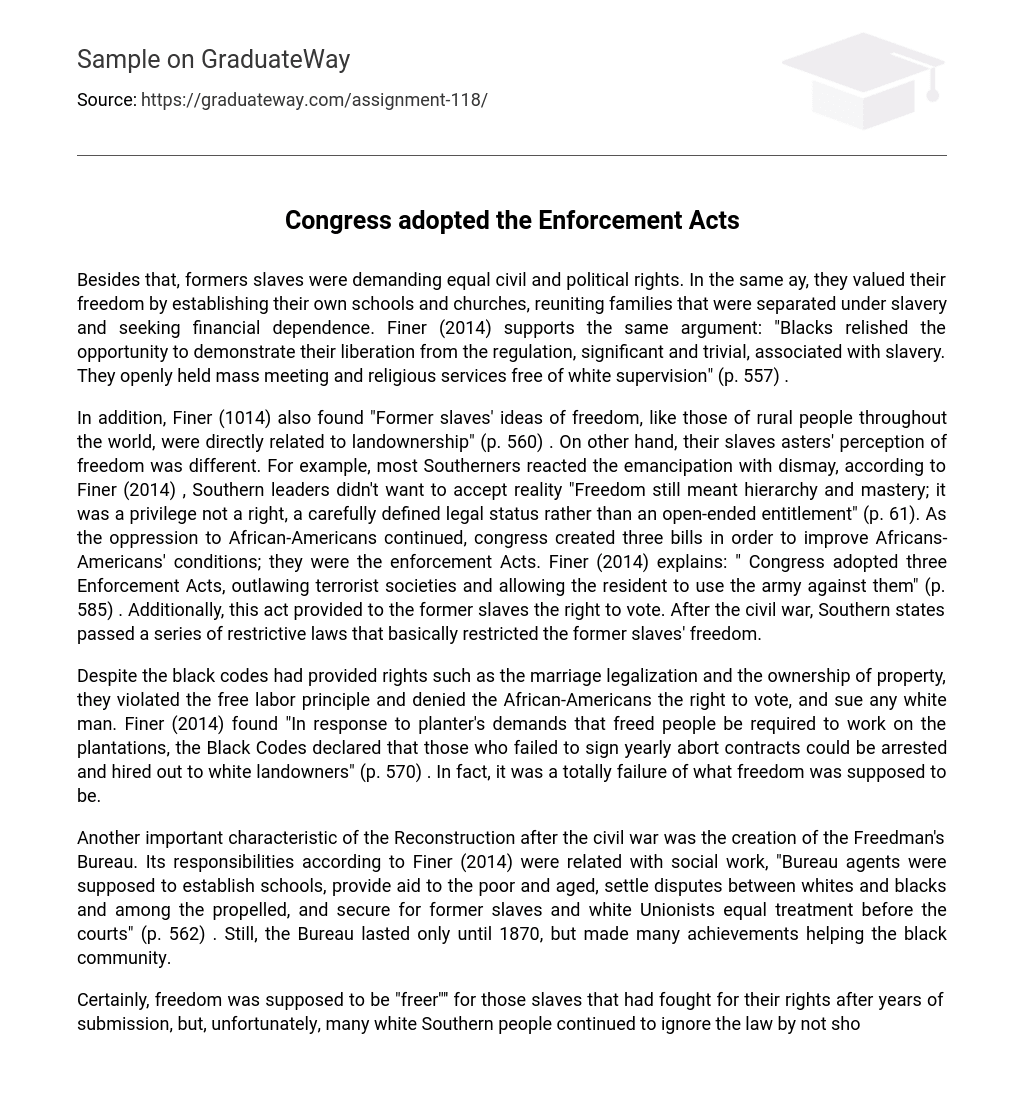Besides that, formers slaves were demanding equal civil and political rights. In the same ay, they valued their freedom by establishing their own schools and churches, reuniting families that were separated under slavery and seeking financial dependence. Finer (2014) supports the same argument: “Blacks relished the opportunity to demonstrate their liberation from the regulation, significant and trivial, associated with slavery. They openly held mass meeting and religious services free of white supervision” (p. 557) .
In addition, Finer (1014) also found “Former slaves’ ideas of freedom, like those of rural people throughout the world, were directly related to landownership” (p. 560) . On other hand, their slaves asters’ perception of freedom was different. For example, most Southerners reacted the emancipation with dismay, according to Finer (2014) , Southern leaders didn’t want to accept reality “Freedom still meant hierarchy and mastery; it was a privilege not a right, a carefully defined legal status rather than an open-ended entitlement” (p. 61). As the oppression to African-Americans continued, congress created three bills in order to improve Africans-Americans’ conditions; they were the enforcement Acts. Finer (2014) explains: ” Congress adopted three Enforcement Acts, outlawing terrorist societies and allowing the resident to use the army against them” (p. 585) . Additionally, this act provided to the former slaves the right to vote. After the civil war, Southern states passed a series of restrictive laws that basically restricted the former slaves’ freedom.
Despite the black codes had provided rights such as the marriage legalization and the ownership of property, they violated the free labor principle and denied the African-Americans the right to vote, and sue any white man. Finer (2014) found “In response to planter’s demands that freed people be required to work on the plantations, the Black Codes declared that those who failed to sign yearly abort contracts could be arrested and hired out to white landowners” (p. 570) . In fact, it was a totally failure of what freedom was supposed to be.
Another important characteristic of the Reconstruction after the civil war was the creation of the Freedman’s Bureau. Its responsibilities according to Finer (2014) were related with social work, “Bureau agents were supposed to establish schools, provide aid to the poor and aged, settle disputes between whites and blacks and among the propelled, and secure for former slaves and white Unionists equal treatment before the courts” (p. 562) . Still, the Bureau lasted only until 1870, but made many achievements helping the black community.
Certainly, freedom was supposed to be “freer'”‘ for those slaves that had fought for their rights after years of submission, but, unfortunately, many white Southern people continued to ignore the law by not showing any respect for Africans-Americans. Because of the radical reconstruction in the south, the African-Americans were a step closer from the same political rights and opportunities as white, since they had the Radical Republicans ‘ support. Together, African-Americans started o organize better, participating for example to mass political meetings, etc.





